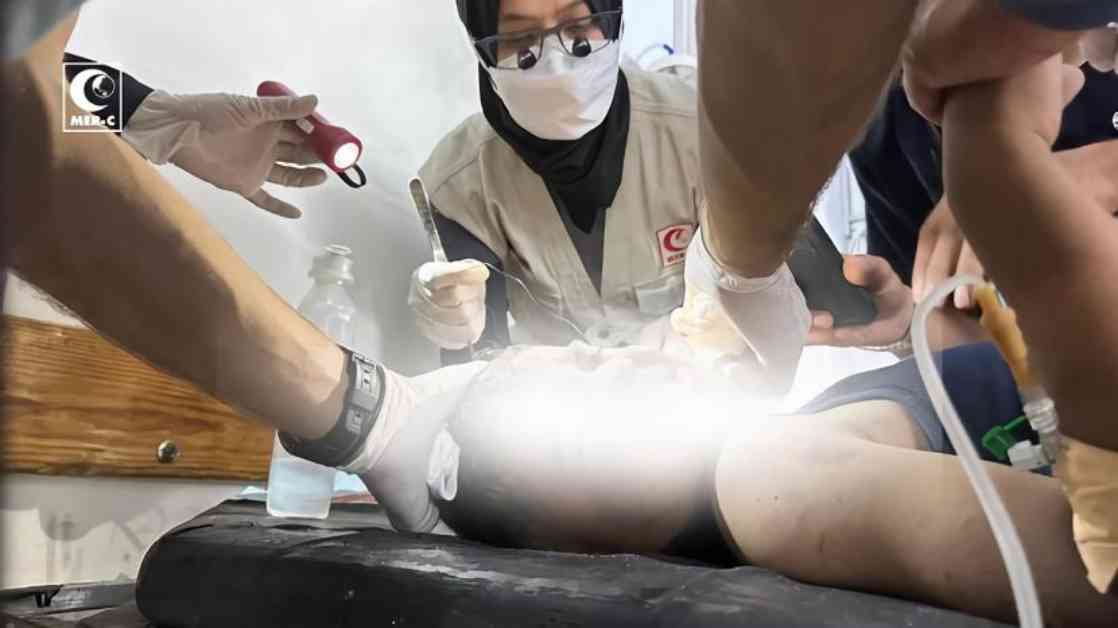After reading the local news article about Israel being urged to allow a medical team entry into Gaza, one can understand the urgency behind the call for international pressure to enable the passage of medical professionals into the northern Gaza region. The Director-General of the Palestinian Ministry of Health in Gaza, Dr. Munir al-Bursh, is leading this plea for assistance, highlighting the devastating consequences of delayed medical supplies and access to critical equipment in the area.
A Plea for Urgent Medical Assistance
Dr. Munir al-Bursh’s plea for the swift entry of medical teams into Gaza is not merely a bureaucratic demand but a cry for immediate action to save lives in the war-torn region. As the Director-General of the Palestinian Ministry of Health in Gaza, he holds a front-row seat to the healthcare crisis unfolding amidst the ongoing conflict. In a recent interview with Al-Jazeera, al-Bursh emphasized the dire need for medical personnel to perform life-saving operations and provide essential care to the local population. The destructive impact of destroyed hospitals and the lack of medical supplies is evident in the rising death toll, with tens of thousands of lives lost due to preventable circumstances.
Al-Bursh’s call for the international community to intervene and pressure Israel to comply with humanitarian agreements is not a matter of politics but a matter of basic human rights. By obstructing the passage of medical supplies, medications, equipment, and power generators into Gaza, Israel is prolonging the suffering of innocent civilians and exacerbating the healthcare crisis. The delayed relocation of field hospitals and medical equipment from southern Gaza to the northern region is compounding the challenges faced by local healthcare providers, who are struggling to deliver essential services amid dwindling resources.
The Human Cost of Bureaucratic Delays
Beyond the logistical challenges, Dr. Munir al-Bursh’s appeal sheds light on the human toll of bureaucratic delays and political posturing in the face of a humanitarian emergency. The failure to facilitate the safe evacuation of injured patients, especially children, reflects a callous disregard for human life and dignity. Despite the ceasefire agreement allowing for the daily evacuation of up to 300 wounded individuals, the reality on the ground paints a starkly different picture. The majority of those in urgent need of medical care are left stranded, unable to access critical treatment or be transported to safety.
The heartbreaking account of 400 children under the age of six awaiting evacuation, only to face repeated rejections from Israeli authorities citing vague security concerns, underscores the inhumane consequences of administrative obstacles. Tragically, at least 100 young lives have been lost in recent months due to the Israeli occupation’s refusal to grant permission for their evacuation, despite meeting all necessary criteria for crossing into safety. The senseless loss of innocent lives underscores the urgent need for immediate action to address the escalating healthcare crisis in Gaza.
In conclusion, Dr. Munir al-Bursh’s impassioned plea for the swift entry of medical teams into Gaza and the safe evacuation of injured patients serves as a sobering reminder of the human cost of bureaucratic delays and political posturing in conflict zones. The international community must heed this urgent call for action and exert pressure on all parties involved to prioritize the well-being and safety of innocent civilians caught in the crossfire of war. Failure to act swiftly and decisively could result in further loss of life and irreversible harm to an already vulnerable population.














